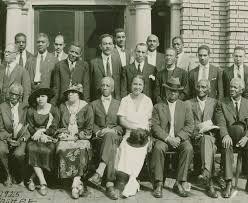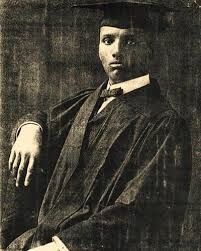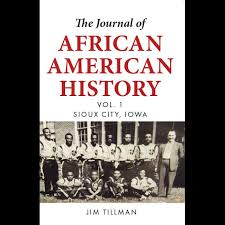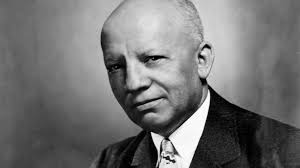Carter G. Woodson was an intellectual scholar whose dedication to celebrating the contributions of African Americans, led to the making of Black History Month, which has been in the month of February since 1976. He always believed that African Americans should be proud of their heritage, and that all Americanas should understand the large achievements of Black Americans. Early on in life, Woodson overcame obstacles to become a well known historian and an author of several books on Black Americans. He was born in 1875 to illiterate parents who were former slaves and his schooling was irregular. When he was young, he helped out on his family’s farm and as a teen, worked in the West Virginia coal mines to support his father’s income. He was self-taught and had thoroughly learned common school subjects by the time he was 17 years old.

Once he entered high school, he had completed his diploma in less than two years. He was a teacher and a school principal before he earned his bachelor’s degree in literature from Berea College in Kentucky. Not long after graduating, he became a school supervisor in the Philippines and later traveled through Europe and Asia. After he got his master’s degree from the University of Chicago, he became the second Black American, after W.E.B Du Bois, to earn a Ph.D degree from Harvard University. Not long after, he joined the staff of Howard University, and eventually became the Dean of the College of Arts and Sciences.

He was barred from attending American Historical Association conferences even though he was always paying his dues as a member. Woodson believed that the white-dominated historical profession has very little interest in Black History. He saw the contributions of African-Americans “overlooked, ignored and even suppressed by the writers of history textbooks and the teachers who use them.” Woodson realized he would have to create a separate institutional structure for Black scholars to study and preserve Black History. He eventually founded the Association for the Study of Negro Life and History in 1915 in Chicago, describing the mission of the scientific study of the “neglected aspects of Negro life and history.” The year after, he started the scholarly Journal of Negro History, which is published to this day under the name Journal of African American History.

His devotion to showcasing the contributions of Black Americans flourished in 1926 when he launched Negro History Week, in the second week of February to concur with the birthdays of Abraham Lincoln and Frederick Douglass. Woodson’s concept was later developed into Black History Month. Woodson died from a heart attack at the age of 74 in 1950 and his legacy lives on every February when schools across the country study Black American History. It empowers Black Americans and educating others on the achievements of Black Americans.
Source: https://naacp.org/find-resources/history-explained/civil-rights-leaders/carter-g-woodson

